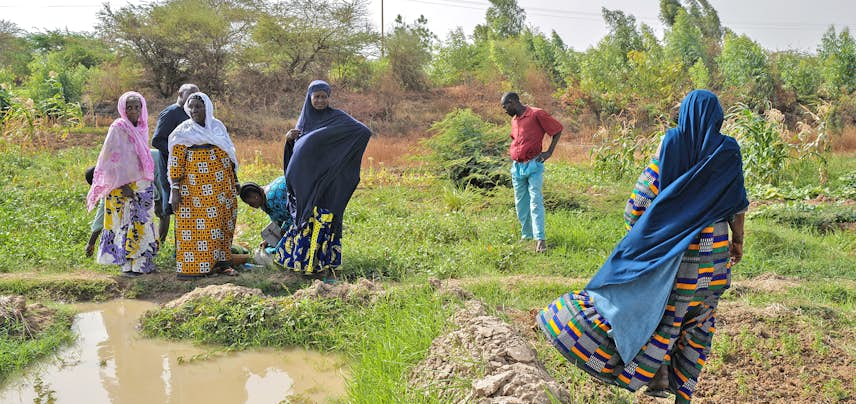Environment & climate change
The major global environmental changes, and in particular climate change, loss of biodiversity and desertification, are adversely impacting the human and natural systems on which human well-being and economic activities are based. They will continue to influence countries’ development conditions. These changes constitute threats and a major challenge for societies in their ability to meet basic human needs, promote justice, peace and security and pursue sustainable growth and development.
The years ahead will be decisive in preventing the effects of climate change, which are already being felt acutely in some countries, and in limiting global warming to 1.5°C above temperatures in the pre-industrial era. Successive reports by the Intergovernmental Panel on Climate Change (IPCC) have shown that the impacts of climate changes, such as increased frequency and intensity in extreme meteorological events including flooding and cyclones, as well as more gradual changes including an increase in sea level, increase in the temperature and acidification of oceans, and long droughts, are already being felt worldwide. The implications in terms of development are therefore considerable. The way in which the communities, towns and countries develop, both socio-economically and spatially, are in addition key determinants of their vulnerability to the impacts of climate change.
The environment is therefore a key element of the overall aim in Luxembourg Development Cooperation’s general strategy, and one of the three cross-cutting issues on which its actions focus. Thus, in 2020 Luxembourg’s Development Cooperation has continued its mainstreaming approach to the issue through its cooperation projects and programmes, aiming to achieve consistency with the principle of additionality of international climate financing as set out in the government’s coalition agreement.
The year 2020 saw the launch of a review process for Luxembourg’s Development Cooperation’s climate environment strategy, based on the international environmental agreements and on political and strategic guidelines developed at international, European and national levels.
A group of consultants was tasked with supporting Luxembourg’s Development Cooperation in this work, which will continue in 2021, the aim of which is to further integrate environment and climate change issues into the projects and programmes supported by official development assistance. These issues will be closely linked to that of gender equality, Luxembourg’s Development Cooperation’s other cross-cutting issue, in order to take into account the proven greater vulnerability of women and girls to the consequences of climate change.
The new strategy will be developed on the basis of key principles in different priority issues consistent with the priorities targeted in the Luxembourg’s Development Cooperation general strategy, and will put forward guidelines concerning different implementation methods. An operational action plan will also be put in place. This will define the key actions to be carried out by Luxembourg’s Development Cooperation in the medium term to ensure the strategy is properly deployed.
